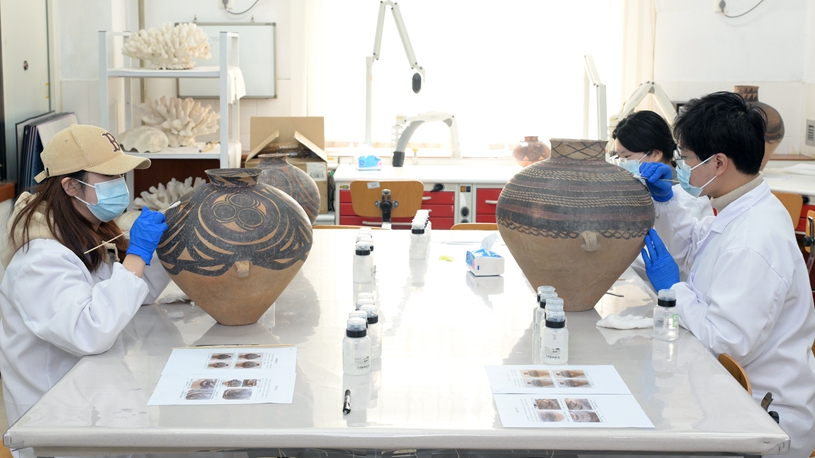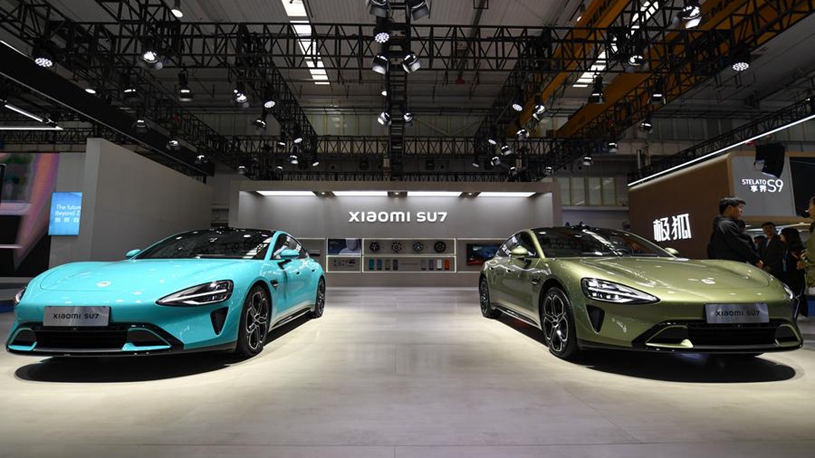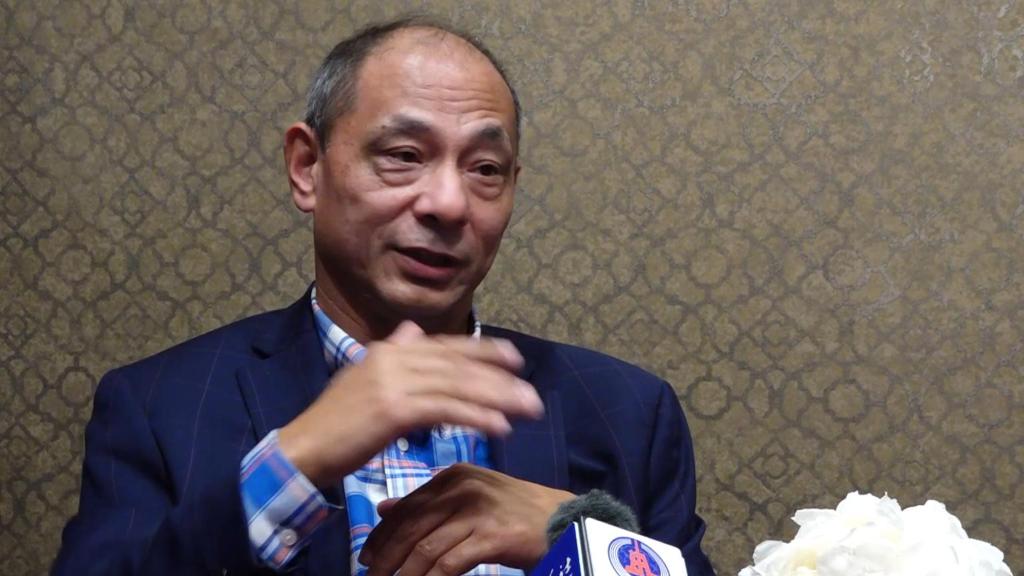* This year's "Double 11" shopping festival is the longest ever. A heady, instant extravaganza has evolved into a month-long affair.
* The "Double 11" shopping spree has long passed the phase when it is all about the thrill of a midnight shopping rush. This year's extended shopping festival is being enjoyed as a quality experience by shoppers, shippers and sellers alike.
* Despite all the changes, one constant is that it remains an optimal source of insights into the country's vibrant online consumption dynamics.
HANGZHOU, Nov. 11 (Xinhua) -- China's annual "Double 11" shopping festival kicked off especially early this year.
When celebrated in the first years after its creation in 2009, it was a frenzied orgy of consumption -- buyers anxiously clicked the checkout button, and online retailers cheered for astronomical sales figures at the exact moment when the clock struck 00:00 on Nov. 11.
Over time, the festival has been extended, especially this year, when e-commerce platforms rolled out their respective "Double 11" programs significantly earlier.
Douyin, for example, started a preliminary sales campaign on Oct. 8. Taobao and Tmall, under China's e-commerce giant Alibaba who created the festival, started on the 14th -- 10 days earlier than last year.
That makes this year's Double Eleven the longest ever. A heady, instant extravaganza has evolved into a month-long affair. With each edition over the past years, the annual shopping spree changed in various ways. However, one constant is that it remains an optimal source of insights into the country's vibrant online consumption dynamics.
NEWER AND GREENER: A TRADE-IN MAGIC
In the early stages of this year's "Double 11" shopping fiesta, Mr. Liu, a Gen-Z Hangzhou resident in eastern China's Zhejiang Province, purchased a Xiaomi TV he had long had his eye on.
"It would have cost 4,599 yuan (about 640 U.S. dollars). But I only paid 2,799 yuan, with Tmall's "Double 11" discount and the 699 yuan trade-in subsidy from the government," he said. "It's a real bargain."
This year, China has been promoting large-scale equipment upgrades and trade-in programs for consumer goods, aiming to boost domestic demand and support continuous economic growth.
As of early November, the trade-in programs had seen over 30 million consumers participating and brought more than 400 billion yuan in sales, according to the country's Ministry of Commerce.
During the ongoing "Double 11" shopping festival, the state's trade-in subsidy has been added to the festival discounts provided by e-commerce platforms for the first time, creating combined offers that drive consumption.
"As the trade-in policy provides more subsidy to energy-efficient products, it effectively pushes forward the replacement of energy-consuming equipment," said Wang Kui, a manager with the trade-in program at Taobao and Tmall Group. "A 'green consumption' is now becoming mainstream."
Statistics show over 92 percent of home appliances sold on Tmall have been the most energy-efficient during this year's "Double 11."
The trade-in policy reduces pollution and boosts resource reuse, helping to build a greener, low-carbon society, said Hong Yong, an associate researcher with the Chinese Academy of International Trade and Economic Cooperation.
IMPROVED EXPERIENCE FOR ALL
The "Double 11" shopping spree has long passed the phase when it is all about the thrill of a midnight shopping rush. This year's extended shopping festival is being enjoyed as a quality experience by shoppers, shippers and sellers alike.
Ms. Chen, a dog owner based in Beijing, said she had a better online shopping experience in the prolonged "Double 11."
"I can still remember a few years ago when I had to load up merchandise several days in advance and check out at 00:00 sharp. That gave me anxiety," she said. "Now I have time to make more rational purchasing and make purchases at different stages throughout the month."
Shippers are allowed to take their time, too. In a month-long time period, they face several smaller delivery peaks instead of one delivery boom they found themselves struggling to cope with.
An extended shopping festival helps alleviate a backlog in logistics storehouses, said Tan Meng, a manager working at a delivery service point in Hangzhou, adding that while parcels increase this year, the logistics is smoother and more organized.
With the buildout of AI, online retailers view this year as the start of applying this cutting-edge technology to their business. Graphic design, virtual presentations, and customer services based on AI made their job easier and faster and helped reduce costs.
"With Taobao's AI tools to generate scenes, I no longer need to tote the products around in photo studios," said a lighting products retailer in Guangdong, talking about product photography. "Using the AI software costs only one tenth of renting a studio."
About 80 percent of the retailers on Taobao and Tmall now use the platform's AI functions, according to the group. Among them are individual sellers, major brands such as the Denmark footwear brand ECCO, French sportswear brand Le Coq Sportif, Japanese retail company MUJI, and the skincare brand NIVEA.
A GLOBAL CELEBRATION
Mr. Huo, a Chinese national now living in Osaka, Japan, found himself relying on Chinese e-commerce platforms for books and stationery. He has been able to join the Chinese shopping spree this year by buying more books and taking advantage of the free cross-border delivery services.
"I still prefer buying on Chinese e-commerce platforms for commodities like phone cases or clothing, as I have a dizzying array of choices at much cheaper prices there," he said.
As this year's "Double 11" began in mid-October, Taobao and Tmall added four countries -- Japan, Thailand, Vietnam and Cambodia -- to their brand-new global free shipping program. The program, initiated in July, covers various countries and regions, including Singapore, Malaysia and the Republic of Korea.
The program waives the shipping fees for orders over a certain amount. In Huo's case, the threshold is 199 yuan.
JD.com, another e-commerce giant, recently included Malaysia and Thailand in its global free shipping zone.
Free shipping services overseas by China's e-commerce platforms reflect their improving capacity in overseas sales, customer service, logistics and payment, said Pan Helin, a member of an expert committee under the Ministry of Industry and Information Technology.
According to data by Taobao and Tmall, almost 70,000 retailers who joined their global free shipping program have seen sales double in the early stages of this year's shopping festival. Sales of tank tops to Thailand grew by 68 percent, while sales of ballet shoes to Japan jumped by a staggering 277 percent from the previous edition.
"Made-in-China products are very competitive globally for their good quality offered at better rates, and that comes from China's mature and efficient supply chain system," said Pan. ■
(Reporting by Yu Aicen, Ma Yujie, Zhang Xuan, Huang Xiao, Zheng Keyi and Wang Junlu; Video reporters: Wang Yiwen and Liu Mingxiang; Video editors: Zheng Xin, Roger Lott, Luo Hui, Yin Le and Jia Xiaotong)










